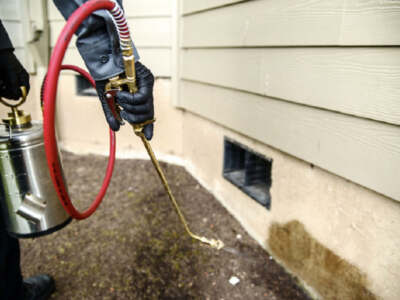Real estate developers are tasked with managing a variety of projects, many of which involve some knowledge of earth systems and scientific processes. One example of this is their responsibility for groundwater control on excavation sites.
Controlling groundwater is incredibly important for excavation sites. Having large quantities of groundwater can cause complications for construction sites and therefore increase construction budgets. Fortunately, there are quite a few ways for real estate developers to manage groundwater in order to avoid unnecessary difficulties on excavation sites and keep project costs as low as possible.
Methods of controlling groundwater typically involve what are known as exclusion methods. These focus on keeping groundwater out of the excavation site in a variety of ways. Techniques that can achieve groundwater exclusion include forming strong barriers made of either clay, cement, or other impenetrable materials, forms of chemical consolidation, compressing air to control groundwater, and freezing groundwater. Beyond excluding groundwater, pumping water out of excavation sites is another common method.
As a real estate developer, you should primarily ensure that you have a construction supplier you trust. Whether you hire them directly or task your contractor with hiring them, you should make sure they are reputable and use quality materials. This will heavily impact the effectiveness of your groundwater management techniques.
To assess the quality of your construction supplier for this project, you should consult online sources or consult other real estate developers on whose services they recommend. You can also look into the manufacturers the supplier purchases materials from and determine if they are trustworthy as well. This research will prevent you from having to address low-quality materials and repair any damage that emerges as a result of them.
Ultimately, real estate developers have many options to consider when controlling groundwater at their site. Each method has a variety of benefits and drawbacks, and are suitable for different types of excavation sites and projects based on a wide variety of parameters and considerations.
Methods of groundwater control through pumps
Ejector systems
Ejector systems use wells that lower to the ground to collect water. They create a suctioning, vacuum effect with the air underground to fill the well and remove the water from the excavation site.
Sump pumping
In this method, groundwater is collected in a sump, or pit, and pumped away from the excavation site. While it is inexpensive, ejector systems can take quite a bit of time if there is a large quantity of groundwater to be ejected.
Deep well systems
Deep well systems involve multiple wells that descend into the ground and fill up via borehole pumps. The wells are submerged and create cones.
Siphon draining
This method involves pumping the groundwater through siphon pipes. This works through the force of gravity. This is a particularly strong technique for excavation sites that are very unevenly sloped.
Wellpoint systems
Wellpoint systems are composed of very small wells that are connected to a pump through a header pipe. The pump is then able to remove the water from the ground and above the surfacing, clearing up the excavation site.
Methods of groundwater control through exclusion
Forming barriers
One of the main methods of exclusion hinges on forming barriers. These can take a variety of forms. One common type of barrier is known as sheet piling. This method is extremely effective at excluding groundwater and is constructed through interlocking joints. A good alternative to this can be fence planters.
Sheet piling has impressive longevity and can also reduce corrosion. They can be used to permanently cut off water from an excavation site, as there is an option to seam-weld the interlocks for a more permanent effect
Compressed air technique
This method is primarily used to remove groundwater that will later be recycled into drinking water. Because of environmental concerns, the materials associated with other forms of groundwater control are not viable, such as cement. To be a possibility, the compressed air technique requires a few prerequisite conditions.
First, the pressure of the air static has to be the same as the pressure of the groundwater. The air static pressure must also be constant. This is achieved through careful procedures and methods. This is one of the most dangerous methods of removing groundwater, so it should only be employed by extremely trained professionals.
Freezing groundwater
Another procedure to control groundwater at an excavation site is by freezing it. This is probably not the best option for your property unless other options have become unavailable. This is primarily because of the high cost of the procedure. However, in some cases, this is the best and only option. It involves a time-consuming method of drilling boreholes in a frozen area and must be executed with careful precision to reduce errors and ensure effectiveness.
Managing groundwater during excavation is an essential job for real estate developers. Excessive water in trenches and ditches will not only make a construction site dangerous, but will also reduce the speed and effectiveness of the work being completed. As a real estate developer, your expertise might not lay in the intricacies of the scientific processes of various forms of groundwater control. Because of this, you should consult a professional to assess which process is right for you and your business endeavors.














Comments